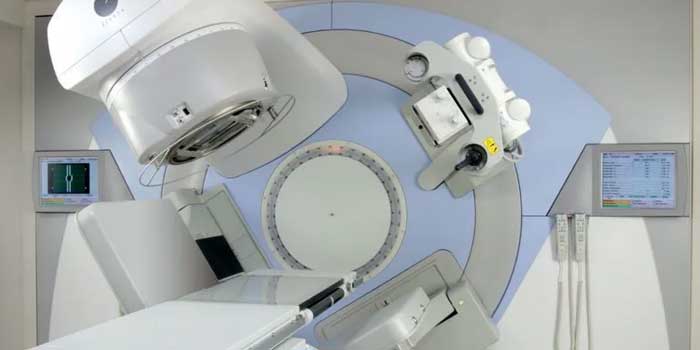- Image Guided Radiotherapy (IGRT) is an advanced form of radiation therapy that uses imaging guidance to precisely deliver radiation to the tumor while minimizing exposure to surrounding healthy tissues. a
- This technology has revolutionized the field of oncology by allowing for more accurate and effective treatment of cancer.
- IGRT works by combining traditional radiation therapy with imaging techniques such as CT scans, MRIs, and PET scans to create a three-dimensional image of the tumor and its surrounding tissues.
- This allows the radiation oncologist to precisely target the tumor with radiation beams, while avoiding critical structures and organs.
- One of the key benefits of IGRT is its ability to account for the movement of the tumor and surrounding organs during treatment.
- Tumors and organs can move due to changes in breathing, digestion, or other bodily functions, which can make it challenging to accurately target the tumor with traditional radiation therapy.
- IGRT technology allows for real-time monitoring and adjustment of the radiation beams, ensuring that the tumor receives the full dose of radiation while healthy tissues are spared.
- Additionally, IGRT can allow for higher radiation doses to be delivered to the tumor, which can result in better treatment outcomes.
- By delivering a higher dose of radiation with more precision, IGRT can often improve tumor control and reduce the risk of recurrence.
- Another advantage of IGRT is its ability to reduce the number of treatment sessions required. With traditional radiation therapy, multiple treatment sessions are often needed to account for the movement of the tumor and surrounding organs. IGRT techniques allow for more accurate and efficient treatment delivery, reducing the overall treatment time for patients.
- Overall, IGRT has significantly improved the quality and effectiveness of radiation therapy for cancer patients.
- By combining advanced imaging techniques with precise treatment delivery, IGRT has allowed for more accurate targeting of tumors, reduced radiation exposure to healthy tissues, and improved treatment outcomes.
- As technology continues to advance, the potential for IGRT to further improve cancer treatment is promising, and it will likely continue to play a pivotal role in the fight against cancer.
For further information regarding cancer treatment
Reach our specialist at I CARE CANCER CLINIC
or Contact +91 8939 8939 95.







